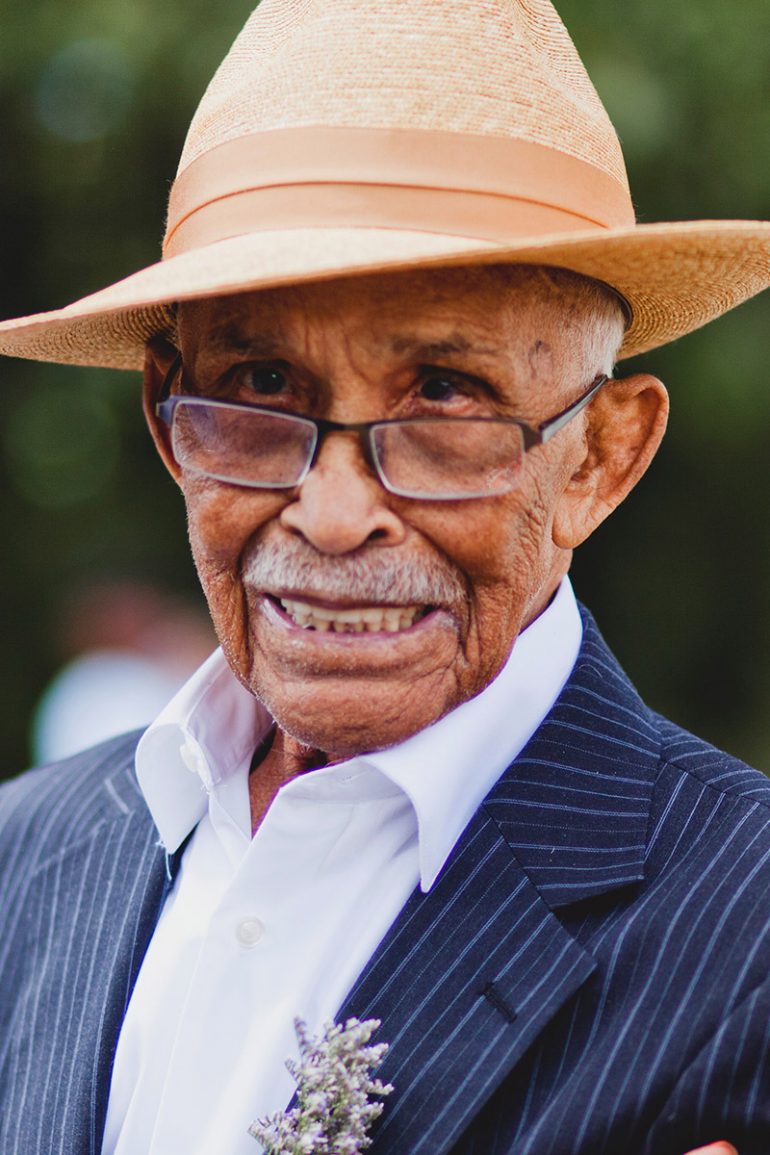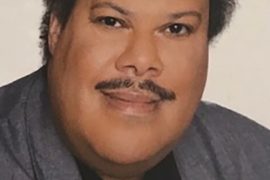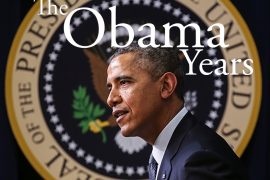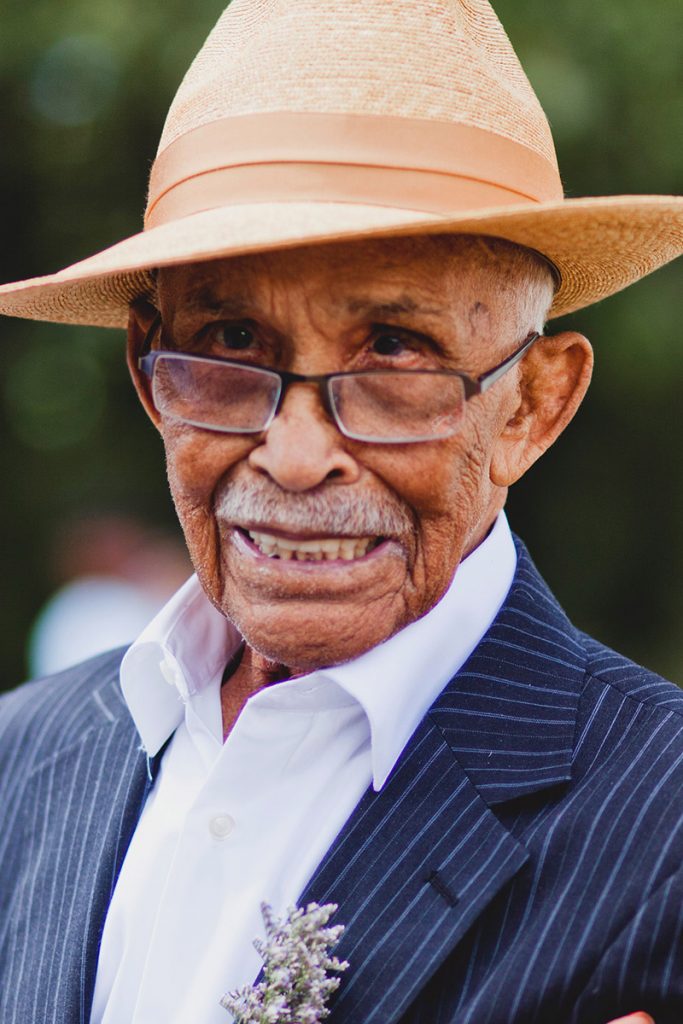
As we approach Father’s Day, I remember “POPS.”
My friend Wayne Watson lost his father, Wade Hampton Watson, recently. Wayne believes his father was 103 years old when he passed.
In the days when Mr. Watson was born, medical records kept for Black folk were sketchy. Black families of that era relied on the family Bible for the most part; that might have been more reliable than government birth certificates.
Racism was rampant and too often Black births were not recorded at all. Mr. Watson lived a full century, no matter the birth record. He and President John F. Kennedy are of the same generation and near the same age and one day apart. JFK would have been 100 on May 29 of this year.
Mr. Watson, who Wayne calls “Pops,” was born in Anderson, South Carolina. He moved with his parents to the North, when a lynch mob of white men came after Grandpa Boston and he defended himself with a gun.
The family knew they had to leave in a hurry. They landed in Chicago because in their leisure they were fans of the Sears Catalog, the dream book that had everything you couldn’t get in Anderson.
Pops vaguely remembered working in the field as a young lad. He was of the rural generation that migrated to the big city. Pops was slight in stature and became a champion wrestler at Lindblom High School, where he became captain of the all-White wrestling team. Pops also played on the football team and would teach his boys wrestling.
I have a very difficult time with funerals. It shows the finality of life and it is also amazing to me how we try to summarize a life well lived in a short hour. At best we get the highlights of a person, their accomplishments and deeds.
His generation raised children and built communities the very old fashioned way. They truly don’t make men like him anymore.
We capture their essence as we attempt to record their history. We capture events, family members and the spirit of a person by citing work accomplishments and achievements. But the impact of the person is often missed.
Pops’ funeral had about four generations of people attending. He fathered three children, and had seven grandchildren and four great grandchildren. He was the patriarch. Recalling Pops’ life – he was of the Greatest Generation – we view the life of a Black man who lived through segregation.
He took care of his family with hard work, steady work and a lot of work. His children went to Catholic schools, served in the army and became successful in many ways.
Pops worked around the clock. He had good jobs. He worked at Commonwealth Edison, the Park District, United Airlines and about 10 other places. In his day, there were working shifts; so he worked three jobs at a time.
He raised a traditional family. Mrs. Watson stayed home to take care of family, raising children and being a full-time homemaker. There were no latchkey kids. Mom was home to help with homework. Dinner was at six. After dinner you could play outside until the streetlights came on.
Pops never missed a game or social activity that involved his children or his grandchildren. He was at all graduations, sports events, family gatherings and social occasions in the neighborhood and at schools. That is a serious accomplishment all by itself.
Pops would sometimes be late to these events because of his multiple jobs, but there was a family whistle he gave that signaled his presence. I witnessed this in person when his grand daughter Keisha graduated from Northwestern University. I attended the graduation with the family and we were slightly late because of the heavy traffic.
When we got there, Pops delivered the “Watson whistle” to let the graduate know your family has arrived. After the graduation ceremony, he whistled again, to let Keisha know where we were in the crowd.
An Old-Fashioned Dad
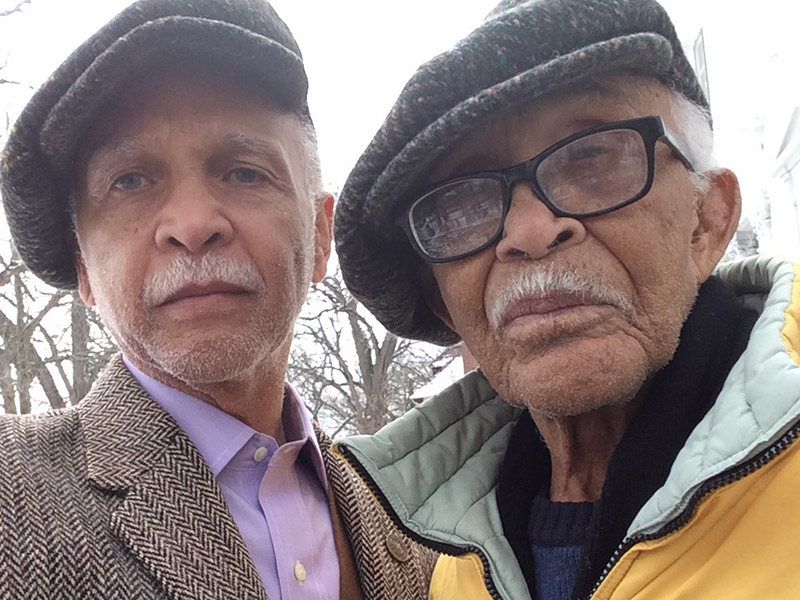
Pops was an old-fashioned dad. He was the dad everybody should have. You raised your family to be healthy, strong and educated. You learned through hard work and led by example. Pops knew no strangers; everybody young to old, family, friend and neighbor, was his friend and they knew that beautiful warm and inviting smile.
He was comical, always joshing in some way. He was athletic. He was a devoted tennis player, playing well into his nineties. Not many could beat Pops at his tennis game. He was a legend on Chicago South Side courts. Pops bought a convertible as an elderly man and never opened the door because he just jumped into the car.
Pops bought a home in Englewood, where he lived until he died. He was Englewood’s longest resident. He did not believe in flight as the neighborhood took a downturn around him. His generation raised children and built communities the very old fashioned way. You solve problem, you don’t run from them.
He knew the kids in the neighborhood – he taught them, he played with them, he bought them ice cream, he monitored their life. He gave children what they needed in their time. He taught his children how to fight in many ways.
He taught them how to rise, how to protect, and most of all, how to raise their children. Unknowingly, he set a tradition, a family tradition that carries forward from his very own common sense and strength.
Pops loved to dance. Wayne married the second time, Cheri Sidney, on a beautiful summer day in what was a perfect summer wedding. Pops was the belle of the ball. He danced. No, there was no two-stepping, old folk dancing.
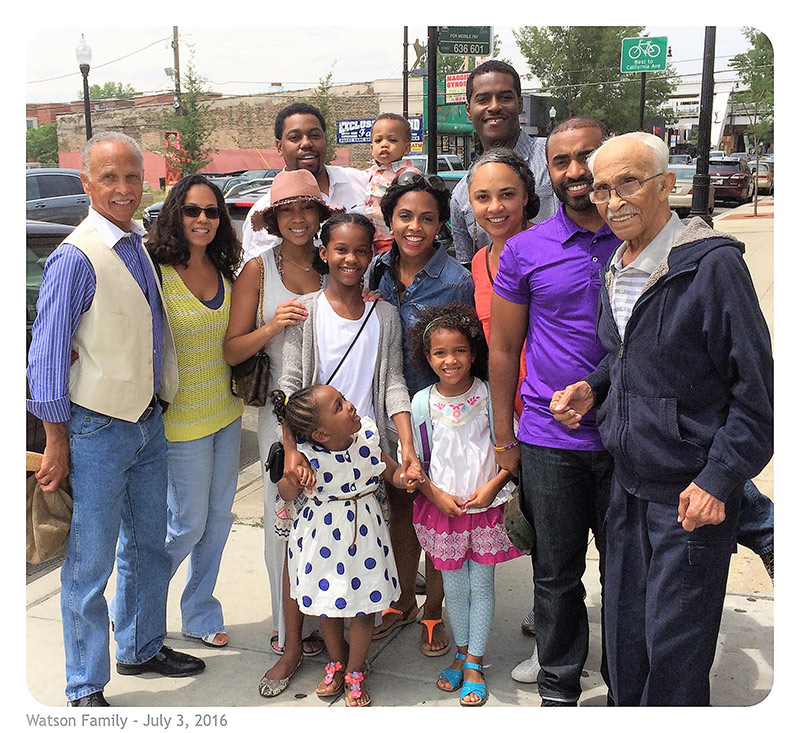
Pops danced and the women lined up to dance with him. He danced with as many women as he could and the room stood still because he was dancing. When Terisa Griffin sang “Dr. Feelgood,” Pops was on his feet for real. His body language was let the party start. He must have remembered his days in the club listening to Dinah Washington, his favorite singer.
He stole the show as he brought the bride to the dance floor. That’s what I remember last about Pops – he danced and he laughed. He was proud and eloquently attired with his straw hat, perfect looking like an English squire. At the funeral we saw a video of Pops dancing with Cheri, the bride.
I had a brief glimpse of a man known as Pops. He reminded me of my very own dad. They truly don’t make them like that anymore.
As we remember and reflect on Pops’ amazing life, I wonder what happened to our families; where did our men go? Where is Pops?


